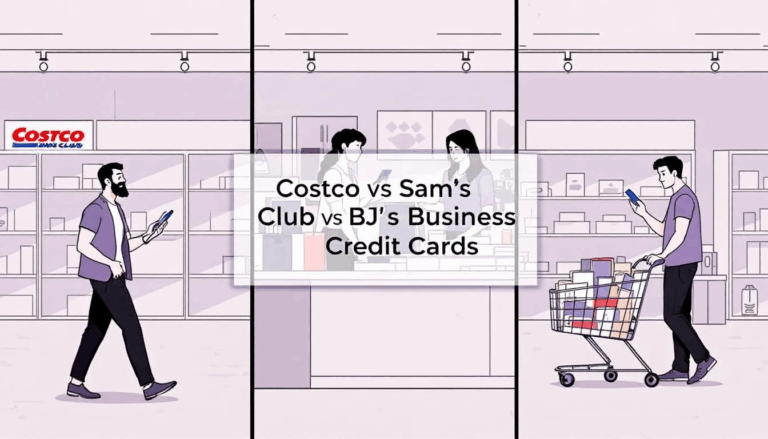What is a Business Cooperative?
A cooperative business, or co-op, is a unique business model where individuals or businesses unite voluntarily to meet their common economic, social, or cultural needs. Unlike traditional business models, where profit maximization for owners or shareholders is the primary purpose, a cooperative prioritizes member benefits and operates under a democratic structure.
Each member-owner typically has one vote, ensuring equal voting power regardless of the amount of capital contributed. Cooperative businesses are often chosen by those seeking a socially driven, inclusive structure emphasizing collaboration and shared responsibility.
Cooperative organizations can take many forms, including consumer cooperatives, producer cooperatives, worker cooperatives, and purchasing cooperatives. Although their structures and purposes vary, they all adhere to the principles of joint ownership, democratic control, and community benefit.
The cooperative model is guided by seven principles, adopted by the International Co-Operative Alliance in 1995:
- Voluntary and Open Membership: Cooperatives are open to all persons willing to accept the responsibilities of membership, without gender, social, racial, political, or religious discrimination.
- Democratic Member Control: Cooperatives are democratically controlled by their members, who actively participate in setting policies and making decisions. Each member has one vote, ensuring equal participation.
- Member Economic Participation: Members contribute equitably to and democratically control the capital of their cooperative. As a condition of membership, they usually receive limited compensation, if any, on capital subscribed.
- Autonomy and Independence: Cooperatives are autonomous, self-help organizations controlled by their members. If they enter into agreements with other organizations, including governments, or raise capital from external sources, they do so on terms that ensure democratic control by their members.
- Education, Training, and Information: Cooperatives provide education and training for their members, elected representatives, managers, and employees so that they can effectively contribute to the development of their cooperatives.
- Cooperation Among Cooperatives: Cooperatives serve their members most effectively and strengthen the cooperative movement by working together through local, national, regional, and international structures.
- Concern for Community: While focusing on member needs, cooperatives work for the sustainable development of their communities through policies approved by their members.
These principles ensure that cooperatives remain true to their purpose of serving the needs of their members and the wider community.
Types of Cooperatives
Cooperatives come in various forms, each tailored to meet the specific needs of their members. Here are some common types:
- Consumer Cooperatives: Owned and controlled by consumers who buy goods and services from the cooperative. Examples include grocery co-ops and retail co-ops like REI.
- Producer Cooperatives: Owned and controlled by producers who supply goods and services to the cooperative. Ocean Spray, a cooperative of cranberry and grapefruit growers, is a prime example.
- Worker Cooperatives: Owned and controlled by employees who work for the cooperative. Mondragón Corporation in Spain is a notable worker co-op, demonstrating the power of democratically controlled businesses.
- Housing Cooperatives: Owned and controlled by residents who live in the cooperative’s housing units. These co-ops provide affordable housing options and a sense of community.
- Agricultural Cooperatives: Owned and controlled by farmers who supply agricultural products to the cooperative. These co-ops help farmers pool resources, reduce costs, and access larger markets.
- Credit Unions: Financial cooperatives that provide banking services to their members. Credit unions offer loans, savings accounts, and other financial services, prioritizing member benefits over profits.
- Purchasing Cooperatives: Owned and controlled by businesses that purchase goods and services from the cooperative. Ace Hardware is an example, where independent retailers pool resources to reduce costs and compete effectively.
Each type of cooperative has unique characteristics and benefits, but all share the common goal of serving the needs of their members.
How do Business Co-Ops work?
Business cooperatives operate under a cooperative structure designed to benefit their members rather than external investors. Here are the core components of how a cooperative operates:
Membership and Ownership
Membership in a co-op is open to those who meet its criteria, such as local farmers in an agricultural cooperative or individuals in a housing cooperative. Members are also owners, contributing capital and receiving a share of the earnings generated by the cooperative enterprise.
Governance and Decision-Making
Co-ops are democratically controlled. Each member typically has one vote in electing the board of directors and on major decisions. This voting power ensures equitable decision-making and aligns with the co-op’s primary purpose.
Operations and Services
The cooperative model emphasizes self-help and mutual support. Whether it’s grocery co-ops providing fresh produce or worker co-ops ensuring fair wages and working conditions, co-ops aim to serve their members effectively while adhering to their mission.
Financial Structure
Co-ops are jointly owned and operate with limited liability for members. Profits are either reinvested in the cooperative or distributed among members as dividends based on their participation.
How do I start a Business Cooperative?
Starting a business cooperative involves several steps:
- Identify the Need: Determine the common economic or social purpose that the cooperative will address, such as reducing costs or supporting local farmers.
- Develop a Business Plan: Outline the cooperative’s goals, financial model, and operational strategies.
- Recruit Members: Attract individuals or businesses that share the cooperative’s mission.
- Choose a Cooperative Structure: Decide on the type of co-op (e.g., producer, worker, or purchasing co-op) that best suits the primary purpose.
- Establish Governance: Draft bylaws and establish a co-op board to oversee operations and decision-making.
- Secure Funding: Obtain financial assistance through member contributions, grants, or cooperative financial institutions.
- Register the Co-Op: File the necessary legal documentation to formalize the cooperative as a legal entity.
- Launch Operations: Begin offering services or products to members and the broader community.
What are the benefits of Business Co-Ops?
Business cooperatives offer numerous advantages. They provide a platform for collective decision-making, ensuring all members have a say in the cooperative’s operations. The democratic structure fosters transparency and accountability.
Co-ops also enable members to pool resources, reducing individual risks and costs. Additionally, profits are reinvested into the cooperative or distributed equitably among members, prioritizing social benefit over individual gain.
Cooperative businesses often emphasize sustainable practices and community development, making them attractive to socially conscious individuals and businesses.
What are the drawbacks of Business Co-Ops?
While business cooperatives have many strengths, they also face challenges. The democratic decision-making process can be time-consuming and may slow down operations.
Raising capital can be difficult as co-ops rely heavily on member contributions and may have limited access to traditional financing. Additionally, conflicts can arise among members due to differing priorities or expectations.
Operating within the cooperative model requires a high level of commitment and collaboration, which may not suit everyone. Despite these drawbacks, co-ops remain a viable option for many.
Business Cooperative Pros & Cons
Pros:
- Democratic decision-making ensures equal voting power.
- Profits are reinvested or equitably distributed.
- Encourages collaboration and shared responsibility.
- Promotes sustainability and community benefit.
- Provides members with direct benefits and services.
Cons
- Decision-making can be slow and complex.
- Raising capital may be challenging.
- Conflicts among members can hinder progress.
- Requires significant member commitment and participation.
- Limited profit opportunity.
Frequently Asked Questions
Here are some of the most common questions about business cooperatives.
How does a Co-Op differ from other Business Entities?
Cooperatives differ from traditional business models such as sole proprietorships, partnerships, and corporations. Unlike a sole-owner or shareholder-driven structure, they are democratically controlled by member-owners.
Profits are not the primary goal; instead, they focus on meeting members’ needs. The cooperative structure prioritizes social and economic benefits over maximizing earnings. Additionally, co-ops embody the principle of one member, one vote, contrasting with corporations, where voting power is often tied to the number of shares owned.
| Aspect | Cooperative | Sole Proprietorship | Partnership | Corporation |
|---|---|---|---|---|
| Ownership | Jointly owned by members | Sole owner | Two or more partners | Shareholders |
| Control | Democratically controlled | Sole decision-maker | Shared decision-making | Board of directors |
| Profit Distribution | Equitably distributed or reinvested | Retained by sole owner | Divided among partners | Distributed as dividends |
| Liability | Limited liability | Unlimited liability | Shared liability | Limited liability |
| Primary Purpose | Member benefit and community focus | Profit for the owner | Profit for partners | Profit for shareholders |
| Voting Power | One member, one vote | Sole decision-making power | Proportional to partnership | Based on share ownership |
| Capital Raising | Member contributions and co-op funding | Personal funds | Partner contributions | Selling shares or bonds |
| Regulatory Requirements | Moderate | Minimal | Moderate | Extensive |
How do Worker Cooperatives benefit workers?
Cooperatives are unique in that they center the well-being of workers in their core values of democratic governance, shared wealth, and community focus. In these environments, workers tend to have access to living wages and pathways to advancement, which build economic mobility.
The principle of one worker, one vote ensures that each member has an equal say and that their workplace is governed democratically. This methodology enhances democratic engagement and cultivates civic stewardship.
As a result, successful worker cooperatives tend to produce stable, long-term employment by operating sustainably and fostering relationships within the social economy. This cooperative environment increases financial security and creates incredible opportunities for upward mobility, especially in sectors where legacy businesses are failing. In the shared ownership model, profits are shared back among the worker-owners, creating a more equitable economic return.
Additionally, cooperatives create a culture of community and support among workers, who are motivated to work together to achieve common objectives. This model fosters individual achievement and group flourishing, creating synergy between personal and institutional goals.
What’s the difference between a Business and Consumer Co-Op?
A business cooperative focuses on serving businesses or workers, such as producer cooperatives that support local farmers or worker co-ops owned by employees. In contrast, consumer cooperatives serve individual consumers, like grocery co-ops and housing cooperatives. While both types operate under the cooperative model, their primary purpose and membership base differ.
Can Business Cooperatives get small business loans?
Yes, business cooperatives can access small business loans, but they may face unique challenges. Cooperative financial institutions and credit unions are often more willing to provide funding.
However, traditional financial institutions may view co-ops as higher risk due to their unique structure and collective ownership. A strong business plan and financial track record can help overcome these hurdles. Financial assistance through grants or cooperative societies can support co-ops facing financial difficulties.
You may be interested in one of the following small business loans:
- Bad credit business loan.
- Business line of credit.
- Business loans for women.
- Business term loans.
- Equipment financing.
- Invoice factoring.
- Merchant cash advance.
- Revenue-based loan.
- SBA loans.
- Working capital loans.
- ERTC advance.
What Is a Cooperative Business – Final Thoughts
Cooperative businesses offer a distinctive approach to entrepreneurship, emphasizing shared ownership, democratic governance, and a commitment to community well-being. While they present unique advantages, such as equitable profit distribution and member-focused operations, they also face challenges, such as slower decision-making processes and difficulties raising capital.
Understanding the cooperative model is crucial for individuals and groups considering this structure, whether for its social benefits, economic opportunities, or alignment with shared values. Ultimately, the success of a business cooperative depends on strong collaboration, shared vision, and a commitment to the principles that define this unique and impactful business model.
Contact us if you have more questions about business structures or need to apply for a small business loan. Our alternative financing experts can help for-profit small businesses find the best loan for their needs.















